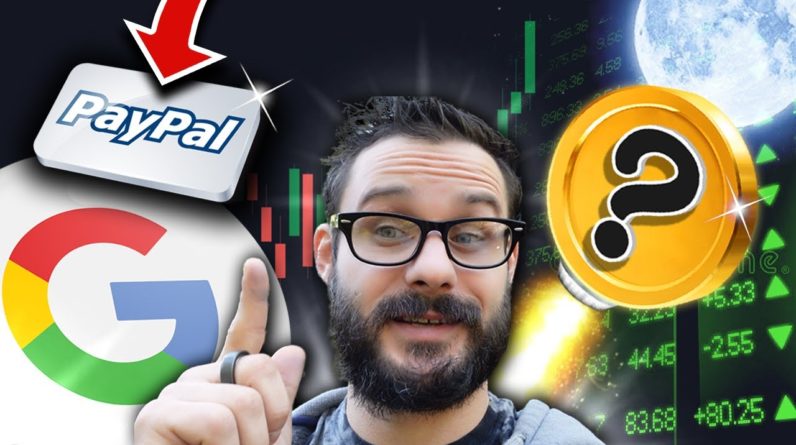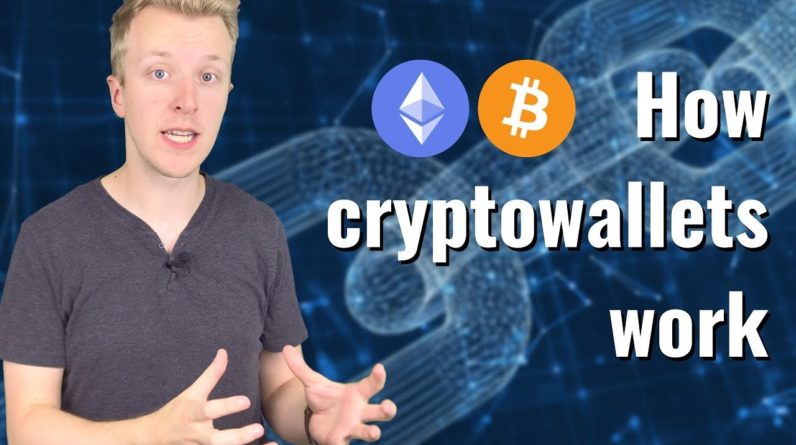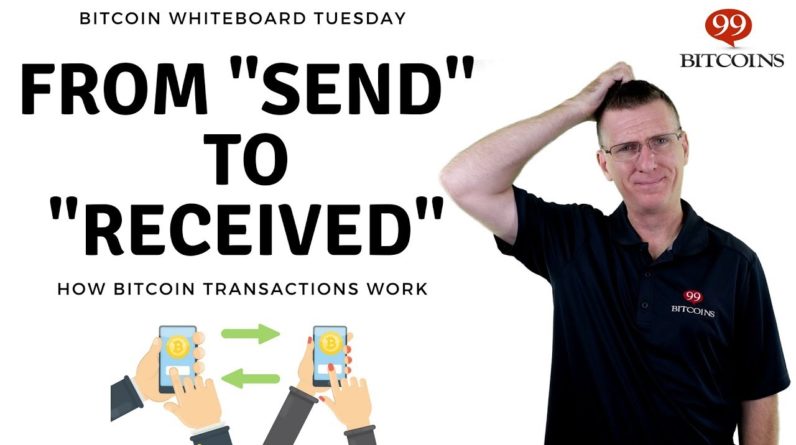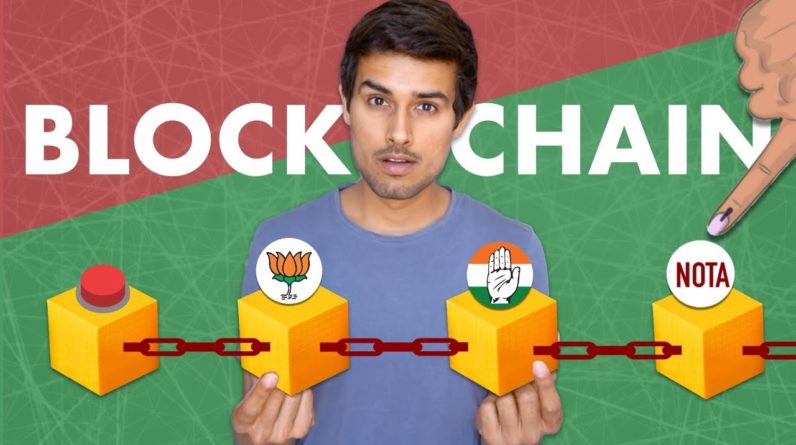
Hello, friends! When you go to vote in the elections, When you press the button for your favourite party on the EVM Have you ever wondered if there is any guarantee that your vote is actually being registered? That your vote is actually counted. Not only through EVMs,
even votes through ballot papers. When you're voting through ballot papers what guarantees that it'll be counted? That any scams will not take place. We are guaranteed this by a central agency. The Election Commission. Basically, we have to blindly trust
the Election Commission that the EC will work properly
for our votes to be counted properly.
But imagine this friends. If we could've guaranteed this ourselves and no central agency, Election Commission
or any third party was required If we could verify our own votes without having to trust anyone else, That our vote has indeed been counted. Do you know, that such systems can be built using
Blockchains. Yes, it's the same technology
on which Bitcoin is based. Blockchain. Some people believe that this technology can revolutionize the entire voting system. How can this be possible? How does this Blockchain technology work? Come let's find out in today's educational video. The biggest question:
What is a Blockchain? Blockchain is basically a technique to store information. To store the data in a decentralised manner. Decentralised means that
there will be no central authority to control the entire data and information. Take RBI for example. Our Indian rupees, this note of ₹500,
is printed by the RBI. RBI guarantees that its value is ₹500. Neither ₹501 nor ₹502. It's even written on the note that RBI guarantees it. So RBI is basically a central authority controlling all the Indian rupee notes around the world.
RBI can change the value of the notes if it wants to. Can increase the note production or decrease it. But on the other hand,
currencies like Bitcoin, are decentralised. There are no central agencies or authorities controlling Bitcoin. It is possible because Bitcoin is based on Blockchain. And Blockchain is the technology that actually makes Bitcoin decentralised. There can be many ways to store information. Writing down something on paper
is a way to store information. Writing something on an excel file on the computer
is a way to store information. On an excel file, your information is structured
in the form of a table. You know the tables. Similarly, in a Blockchain, the information is structured in the forms of blocks. Each block is made up of three main things. First, any data or information you store in the block. Second, each block has its fingerprint known as Hash. This is the way to uniquely identify a block among other blocks. Every block has its own fingerprint.
And third, each of these block stores the fingerprint of the block before it. This is a Blockchain. This block will have its own fingerprint
and of the block behind it. And thirdly, any information you put into it will be stored here. This is how all the blocks are linked with each other. And the most unique thing about this is that If you want to change the data in any block, if you try to tamper with the data, then the fingerprint, or the hash, of the block will change. And if the hash of one block changes,
the hash of the next block will also change. And the next and eventually the entire blockchain will be destroyed.
For this reason, it is next to impossible to alter or tamper with the data in a blockchain. Because once a block is defined and becomes a part of the blockchain It cannot be altered after that. The second major reason for Blockchains being secure is Decentralisation. You will not find a blockchain stored in only one computer. Blockchains are stored in a network of computers. All the computers around the world belonging to the participants of the blockchain will have one copy of this blockchain. Instead of one central authority, it is managed and run by a network of computers collectively.
The people who are connected to the blockchain through their computers and those who allow the blockchain to run on their computers they are known as Nodes. Some Nodes among them are Minors. Whenever new data is added to the blockchain,
it's the work of the Miners to verify it. Whether the person adding the data
has done so properly or not. Or whether it is an attempt at tampering. All the Miners verify and record this. Any computer connected to this network can see the data added to the blockchain. There is no need for any third party. No need for any Central Authority. You too can connect your computer to the network and verify this. This is why I said that the election process can be conducted in a manner where you vote and can verify whether your vote has been counted or not yourself. But all of this is theoretical. Let's see some practical, real-life examples. To understand this better. I talked to a Blockchain expert regarding this. Co-Founder of the ArGo app. The ArGo app provides you with tools that help you to deploy your applications and websites on a decentralised blockchain.
The benefit of this is that you will get
unlimited bandwidth, 100% uptime, and all the benefits of a decentralised blockchain. ArGo will work to run your application on a decentralised blockchain. Prashant, can you tell us some practical, real-life uses of blockchain where it is already being used? Other than Bitcoin. If I talk about India, in India, its biggest user is the Education system. Where people forge mark-sheets for submitting them to places So much so that people can't even believe that the person has studied in IIM. Or studied from IIT. If I ask you to prove it, you might not have any proof apart from your certificate. You have no other proof that you can attach. So it can be used there reliably and people are working on it as well. So it means that we can upload our mark-sheets and certificates online And then they cannot be changed. This is the benefit of using the Blockchain. Yes, and the biggest benefit is that
the mark-sheet uploader, let's say the CBSE Board, —–
all the boards, the Boards can directly use Blockchain to upload the mark-sheets so that if any corrupt person gets into the Boards and wants to change the mark-sheets, you might not believe it, but it is possible to do that even today, But doing it through Blockchain means that
it can never be changed.
Your old mark-sheet cannot be changed. And even if someone changes it, you'll get the details. About who made what change and where. You might wonder that if everyone can see the information in the blockchain, and the copy of the blockchain will be present in every computer of the network, so any information you put in will cease to be private and can be seen by anyone. So what about your privacy? Actually, friends, the information in the Blockchain is not only secure but also is privacy protected.
It can be so because each computer in the network has its own Private Key, and a Public Address. Think of them as the email address and email password. When you log into your email account, you enter your email id and the password
and only you can log into your account. It is the same with Blockchain. But when you share your email id with others you share your public address,
not your private key. And this Public Address is a random combination of numbers and digits. Somewhat like this. So if you vote for some candidate using your Public Address through the Blockchain system, then even your name will be private. The other computers on the network will see that this Public Address has voted for this candidate. But who the person is behind the Public Address, their name, age, address, nothing will be revealed.
Privacy will be maintained. What does your company do with Blockchain? What our company does is
let's say you have some data the companies I'm talking about,
the ones uploading the certificates, the people who are using Blockchain, They can use our product directly to perform the entire operation. Our entire program is entirely community driven. It is run by the community.
Our work is to build the product for them. The community chooses the features they want and we build them. So basically you're saying that if CBSE comes to you and says that they want to migrate their mark-sheet system to Blockchain, your company will do that. We wouldn't do that. We do two things at our company. One, we build the platform.
Two, we provide service. So we build the platform and if CBSE wants to build their application on it, they can do so. And we will help them in building that as well. So it means that any company that wants to run on Blockchain can use your platform.
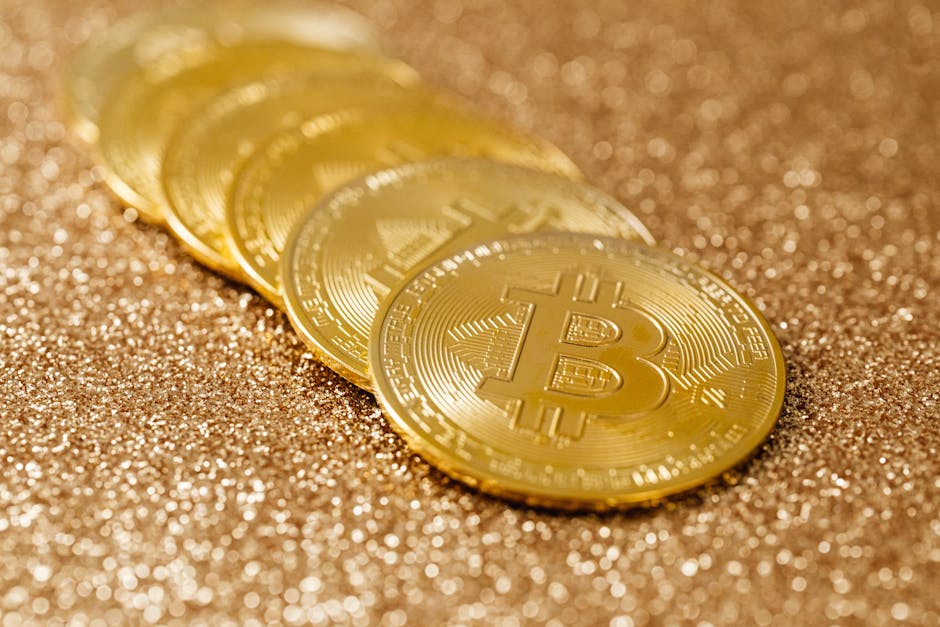
Yes, the biggest advantage of it is that let's say what happens sometimes is that the CBSE and other Government sites give a 404 error most of the time on the front area. Or their front doesn't load. In that case, it is either because of their carelessness or the systems are not maintained. So to avoid carelessness and other human errors they can create a backup through us. And they can deploy those sites through us. So what happens is that even though the original domain is down, but Blockchain works on Nodes
and transactional IDs the Transaction ID will always be live and any user can use it to open the site.
So if a website is on your platform, it will never show a 404 error. Never, that's for sure. Until and unless there is a catastrophic event And all the Nodes around the world all our systems All the computers connected to the network go down. And that is a next-to-impossible situation until and unless something really catastrophic happens. What will happen when a person tries to alter the data in the Blockchain? How can the system prevent it from happening? Let's take the example of the Bitcoin Blockchain.
Suppose ₹50 is to be transferred from A to B. A new block will be created with A and B's Public Addresses. And the amount being transferred.
₹50 in this case. Now, the other computers on the network will record this. They'll record that A initiated the transfer to B and the amount transferred. And then they'll verify the transaction. But if one of the computers says that the transfer isn't from A to B instead from A to itself. But the other computers on the decentralised network recording the transaction will refuse the claim because they can see that the transfer is between A and B. This is why the system will listen to the other computers and allow the transaction from A to B.
If one wants to alter or do fraud in the Blockchain,
one would need the majority of at least 51%. This is also considered a disadvantage of Blockchain. If someone hijacks or hack 51% of the computers on the network fraud can be done or allowed to be done on the network. But realistically, to hack 51% of the computers on the network is next to impossible Because all of them are decentralised, they're not connected to each other. It is not that if one is hacked, the others are hacked as well. They will have to be hacked individually at their locations. And in a large Blockchain, like Bitcoin's, where millions of computers around the world are connected on the network there it is almost impossible. Because who can hack millions of computers from every corner of the world? The larger the Blockchain and the more computers and people connected to the network it will become increasingly difficult to hack the Blockchain.
You may also wonder that the computers connected to the network they keep on verifying the new blocks added to the Blockchain 24*7 they verify which block is authentic and which isn't. But what do they get out of it? Why would a person keep their computer connected to the Blockchain network and let it do this 24*7? What will the person get out of it except a huge electricity bill? There has to be some reward. So there are rewards, friends. In the case of Bitcoin Blockchain, this reward is in the form of Bitcoins.
Every computer mining for Bitcoins and connected to the Bitcoin Network gets some Bitcoins. And if any computer falsely verifies something, it is punished as well. And there is a penalty. So the whole decentralised network works on the basis of reward and punishment. Talking about some more examples where Blockchain is implemented in real life The most shocking and interesting fact will be that it has already been used for elections. There is a country in Africa Sierra Leone. There Blockchains were used during the elections for voting. But I should also tell you that many experts believe that using Blockchain technology for elections and voting is not right. According to them, the disadvantages are more than the advantages. The chances of getting hacked increase. Even though it is difficult to hack the Blockchain,
but on an individual level, it may not be that difficult to hack the phones of individuals. And attacks can be carried out where the network can be switched off. So this is not a simple solution,
it is a topic for debate. About how can it be implemented and whether it will be right to implement it or not.
But there are some other sectors where Blockchain is definitely very useful. And it is already being used there. Like in the Healthcare sector. Blockchain can be used to store medical data. So that the medical record of the patients is not stored in a database in a centralised way. A doctor cannot access them unless there is a need. Patients will have more privacy. And the data will be more easily accessible. It can be used for trading as well. There is a platform called we.trade that is being used by many people. Whenever you order something from somewhere, and you don't know much about the supplier and how reliable they are.
You're unsure if they will be able to deliver the goods or not. And the supplier doesn't know much about you either if you can pay on time or not. Here, Blockchains are used to enter into Smart Contracts. Contracts that are based on Blockchains. Because of these contracts, you wouldn't need to trust any third party. Once the goods are delivered, money from your bank account will be transferred to the supplier's. Similarly, property management, crowdfunding, and the management of Government data can be done efficiently by using Blockchains. Nowadays, the Government stores so much of our data on its servers where they fail to keep it protected. Often we get to hear that government databases are hacked and so much data has been leaked, the Aadhar data kept here has been leaked there. Personal information of people is leaked. But if Blockchain is used it will not happen. Because we will not have to trust the Government to protect it. In a decentralised network, all of us can verify for each other. We can make it our work.
In the coming time, we're moving towards a decentralised future. It means that many websites and applications on cloud-based platforms soon will move to Blockchains. And companies like ArGo will make this transition easier. What do you think is the potential of Blockchain in the near future? I believe that after the next 10-15 years the same applications that you use today,
be it social media, censorship or copyright issue, video upload, streaming platform or any platform that you can name, All those companies will have to use Blockchains because the user today trusts and believes in the companies that are transparent with their work Not those who hide from the public eye and modify their processes. For this reason, some people believe that Blockchains can revolutionize the world.
Like how the Internet had changed history. Now we can't even imagine life without the internet. Similarly, people believe that soon it will be difficult to imagine life without Blockchains. Let's see how it will be used in the future. I hope you found this video informative. The link to ArGo is in the description below do check them out. Let's meet in the next video. Thank you very much..


